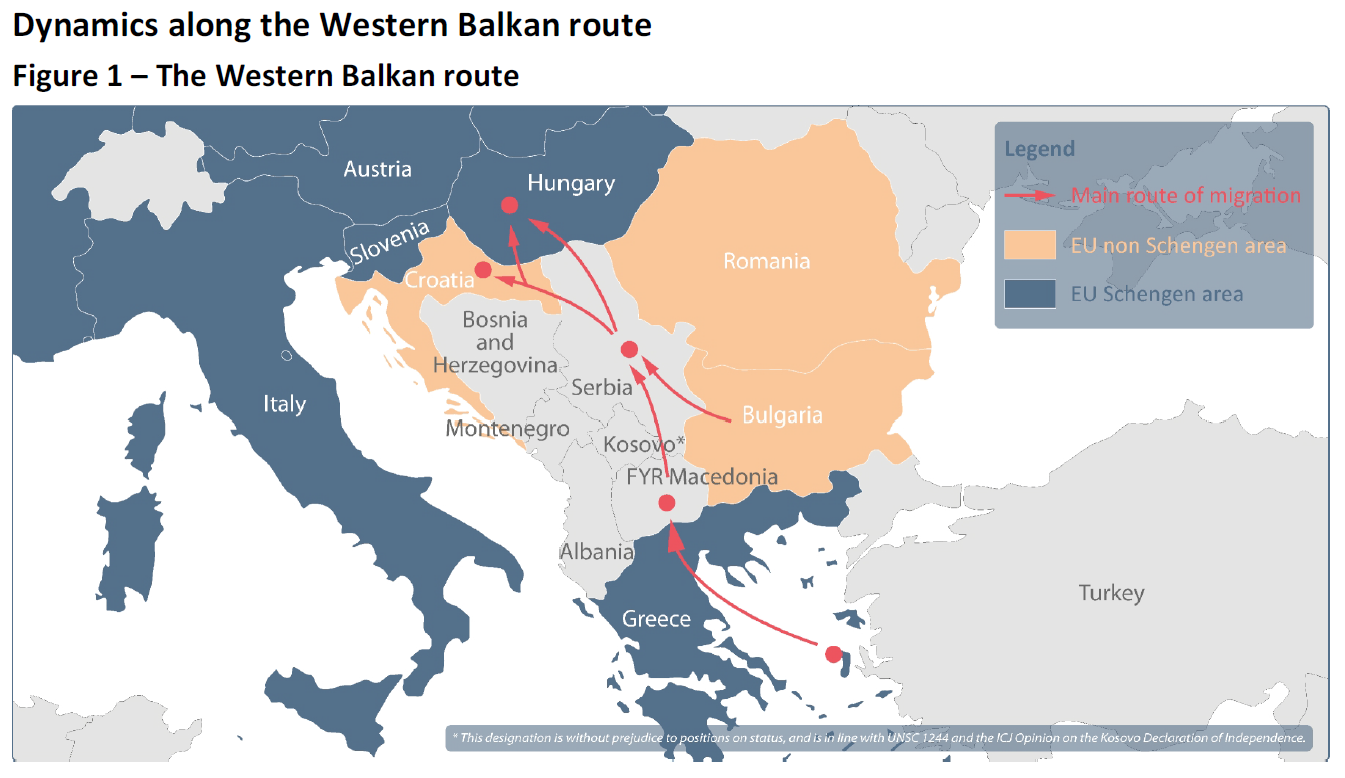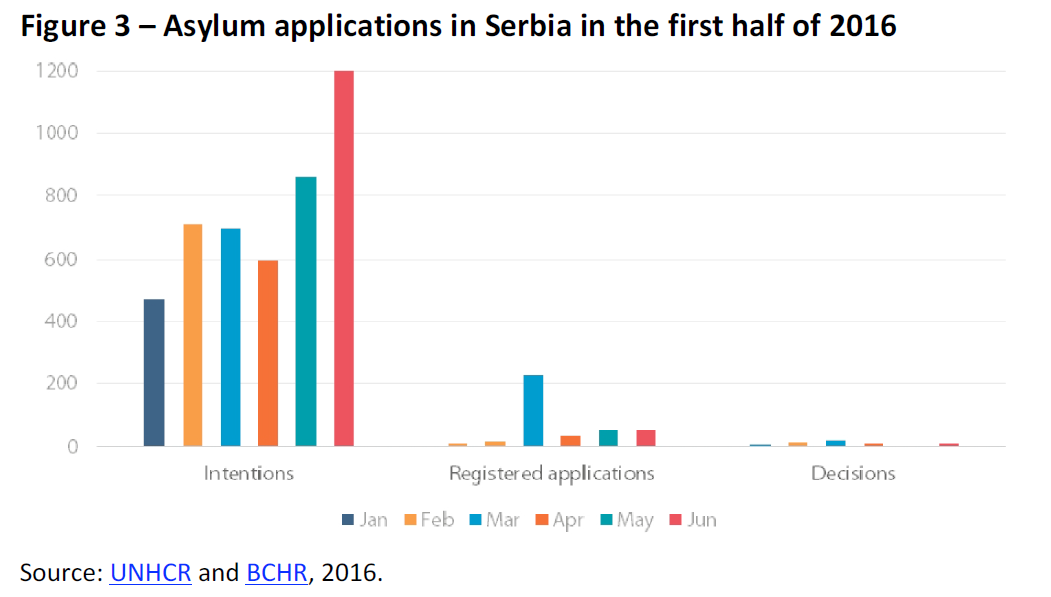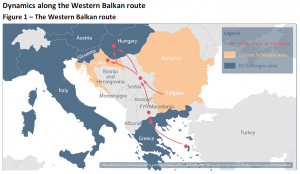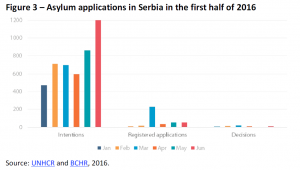Written by Velina Lilyanova,

In 2015, the Western Balkans experienced an unprecedented movement of migrants and refugees headed towards the EU. This created a wider European challenge affecting both EU Member States and candidate countries located along their route, particularly Serbia and the former Yugoslav Republic of Macedonia.
Serbia’s role has mainly been that of transit country; nevertheless, the migration flows have placed a humanitarian and financial strain on its asylum system. In a dynamic situation, lacking a coordinated EU approach countries have resorted to unilateral actions (such as introducing border controls and erecting fences) and tensions with neighbours have spiked. Serbia has thus had to adopt short-term measures to respond as best as it can. Following the EU-Turkey deal in March 2016, asylum applications in Serbia increased, creating an additional burden. Despite Serbia’s less advanced asylum system, limited institutional and accommodation capacity and reported cases of human rights abuses, its open borders policy, political discourse and overall handling of the crisis have largely been considered positive.
In the context of this crisis, Serbia, an EU candidate country since 2012, has acted as an EU partner committed to cooperation and regional stability. The EU has been providing it with technical, humanitarian and financial support, and has commended its positive approach. In July 2016, negotiations on Chapter 24 (which includes asylum and migration) were opened. In the common negotiating position, the EU defined Serbia as a key partner in finding a sustainable solution to the migrant crisis. To meet EU standards in the context of its accession talks and prepare adequately for future challenges, Serbia has to carry out migration and asylum-related reforms and increase its reception capacity. The challenge for the EU is to forge a coordinated approach focused on longer-term goals, taking into account the strategic importance of the region’s stability and security, crucial for the EU’s own.
Read the complete Briefing on ‘Serbia’s role in dealing with the migration crisis‘.














Take Five: “The media in Serbia can make a major contribution to the fight against gender-based violence”